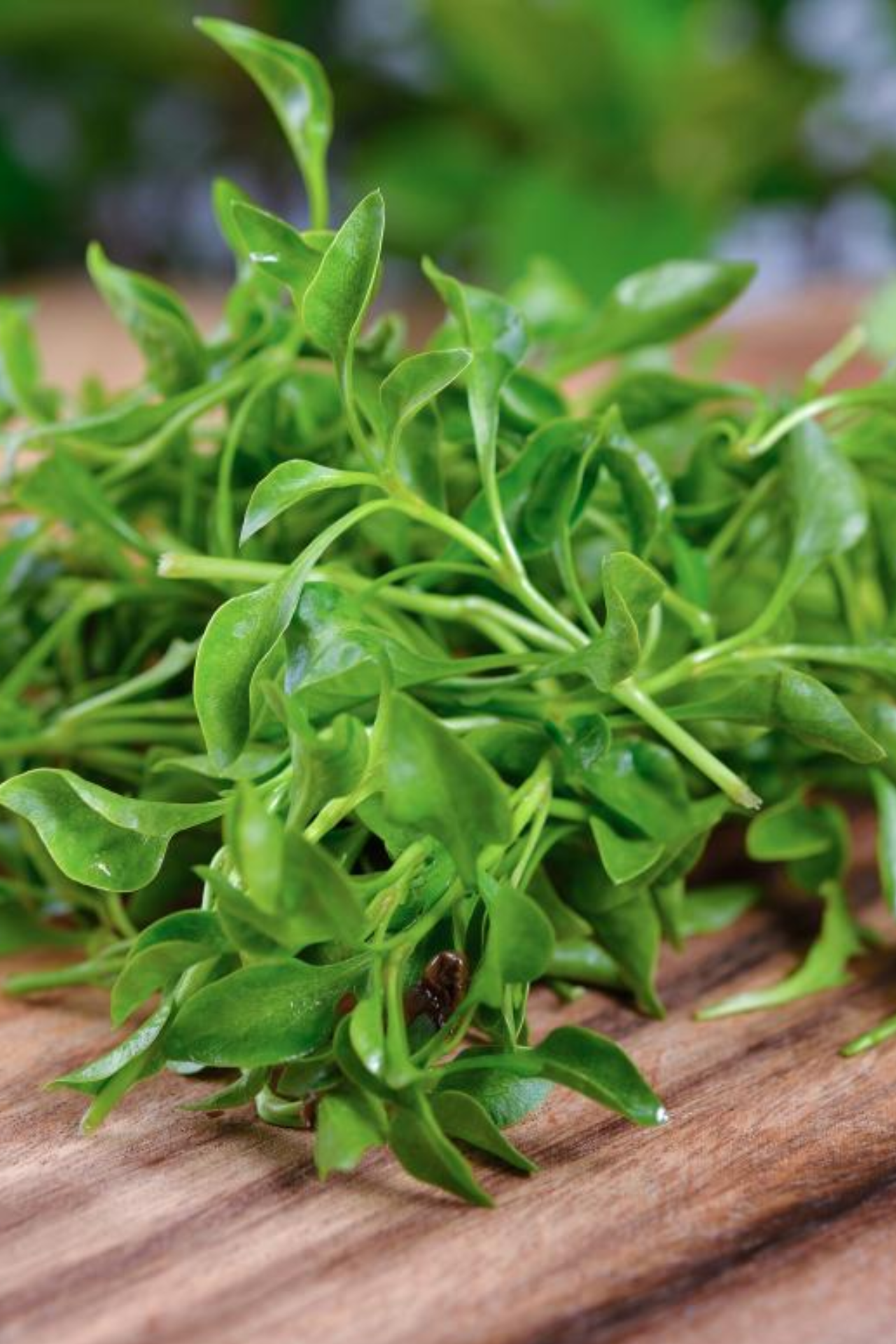From afar and in it’s natural state, it almost looks as if this vegetable is a clump of shamrock you’d see growing in your backyard. But don’t be fooled! Watercress is known to have many health benefits.
Just one cup of chopped watercress offers nearly 25% of your Vitamin C, 20% of your Vitamin A, and over 100% of your Vitamin K daily intake. That’s not all this leafy green has to offer. Watercress is also known to provide other benefits such as boosting one’s immunity, preventing cancer, and even thyroid support.

Did you know that a serving of watercress actually contains more vitamin C than that of an orange, more calcium than that found in milk, more iron than in spinach, and more folate that in bananas? It’s no wonder that some consider this the newest powerhouse vegetable to-be. In addition to this, Watercress is a lot more beneficial than just the nutrients it contains. Here are some of the benefits this vegetable is known for:
Cancer Prevention
Watercress is a nutritional powerhouse with a remarkable health benefit: cancer prevention. This leafy green, often hailed as a superfood, contains a wealth of cancer-fighting compounds that make it a valuable addition to any diet.
Some studies have shown that a daily dietary intake of folate can act as a preventative against colorectal cancer. Studies also indicate that watercress’s phytonutrient may be effective in preventing and even stopping the recurrent of breast cancer. In addition to this, the vegetable’s carcinogenic abilities showed benefit in preventing other cancers relating to the stomach and lung. Another great benefit shown is in its effectiveness in reversing DNA damage done to white blood cells.

Watercress is particularly rich in antioxidants like vitamin C and beta-carotene, which help combat harmful free radicals in the body. These free radicals can damage DNA and increase the risk of cancer. Additionally, watercress contains a unique compound called phenethyl isothiocyanate (PEITC), which has been shown in scientific studies to inhibit the growth of cancer cells, particularly in the case of lung and breast cancer.
Furthermore, watercress is packed with essential vitamins and minerals, such as folate, vitamin K, and calcium, that support overall health and may contribute to cancer prevention indirectly by boosting the immune system and promoting overall well-being. Its high fiber content also aids in maintaining a healthy digestive system, which is crucial for toxin elimination and reducing cancer risk.
Improved Thyroid Gland Functionality
One of the remarkable health benefits of watercress is its ability to improve thyroid gland functionality. This peppery green leafy vegetable is packed with essential nutrients, including iodine, which plays a crucial role in maintaining the health of the thyroid gland. The thyroid gland is responsible for producing hormones that regulate metabolism, energy levels, and overall body function.

As a member of the brassica family of cruciferous vegetables, watercress has shown to be effective in thyroid health by reducing the thyroid hormone production, especially when eaten raw. Although, lightly steaming watercress is also OK since nutrients are still maintained.
Watercress’s high iodine content supports the thyroid gland by ensuring it has the necessary building blocks to produce thyroid hormones efficiently. This, in turn, helps regulate metabolism, which can contribute to maintaining a healthy weight, boosting energy levels, and supporting overall vitality.
Improved Bone Health
Watercress isn’t just a pretty garnish; it’s a nutritional powerhouse that can significantly benefit your bone health. Packed with essential vitamins and minerals, this vibrant leafy green plays a crucial role in maintaining strong and healthy bones.

Since watercress is rich in calcium and folate, it’s no surprise that this vegetable works in reducing the risk of osteoporosis by repairing and building bones caused by an increase in the production of osteoblasts. This is especially beneficial in those who have a sedentary lifestyle.
First off, watercress is an excellent source of calcium, a mineral essential for bone strength. Just one cup of fresh watercress provides a significant portion of your daily calcium needs, helping to fortify your skeletal structure.
But that’s not all – watercress is also rich in vitamin K, a nutrient that plays a key role in bone mineralization. Vitamin K helps ensure that calcium is properly deposited in your bones, preventing it from accumulating in your blood vessels.
Additionally, the high levels of antioxidants in watercress can reduce inflammation and oxidative stress, which are known to contribute to bone loss over time.
Antidepressant and overall Brain Health
If you’re looking for a natural way to boost your mood and support your brain health, consider incorporating watercress into your diet. This leafy green powerhouse is not only delicious but also packed with nutrients that offer numerous mental health benefits.

A low folate level, or excessive alcohol intake, may increase the risk of depression. With watercress being high in folate content, it can act as an important dietary supplement and aids in reducing the risk of chronic depression. Containing also vitamin C, this vegetable also prevents cognition changes relating to Alzheimer’s and aging by protecting and repairing brain tissues. Additionally, this vitamin also helps reduce bleeding when a stroke occurs.
Watercress is rich in folate, a B-vitamin known for its role in promoting the production of neurotransmitters like serotonin and dopamine. These chemicals play a crucial role in regulating mood, and deficiencies are often linked to mood disorders such as depression. By providing a healthy dose of folate, watercress can help support your mental well-being.
Additionally, watercress is a potent source of antioxidants, including vitamins C and E. These antioxidants protect your brain from oxidative stress, which can lead to cognitive decline and neurodegenerative diseases. By reducing oxidative damage, watercress helps maintain optimal brain function and supports long-term cognitive health.
This is just a short list of the many health benefits that food has to offer. And of course, the vegetable makes a great addition to any meal, especially a salad.


